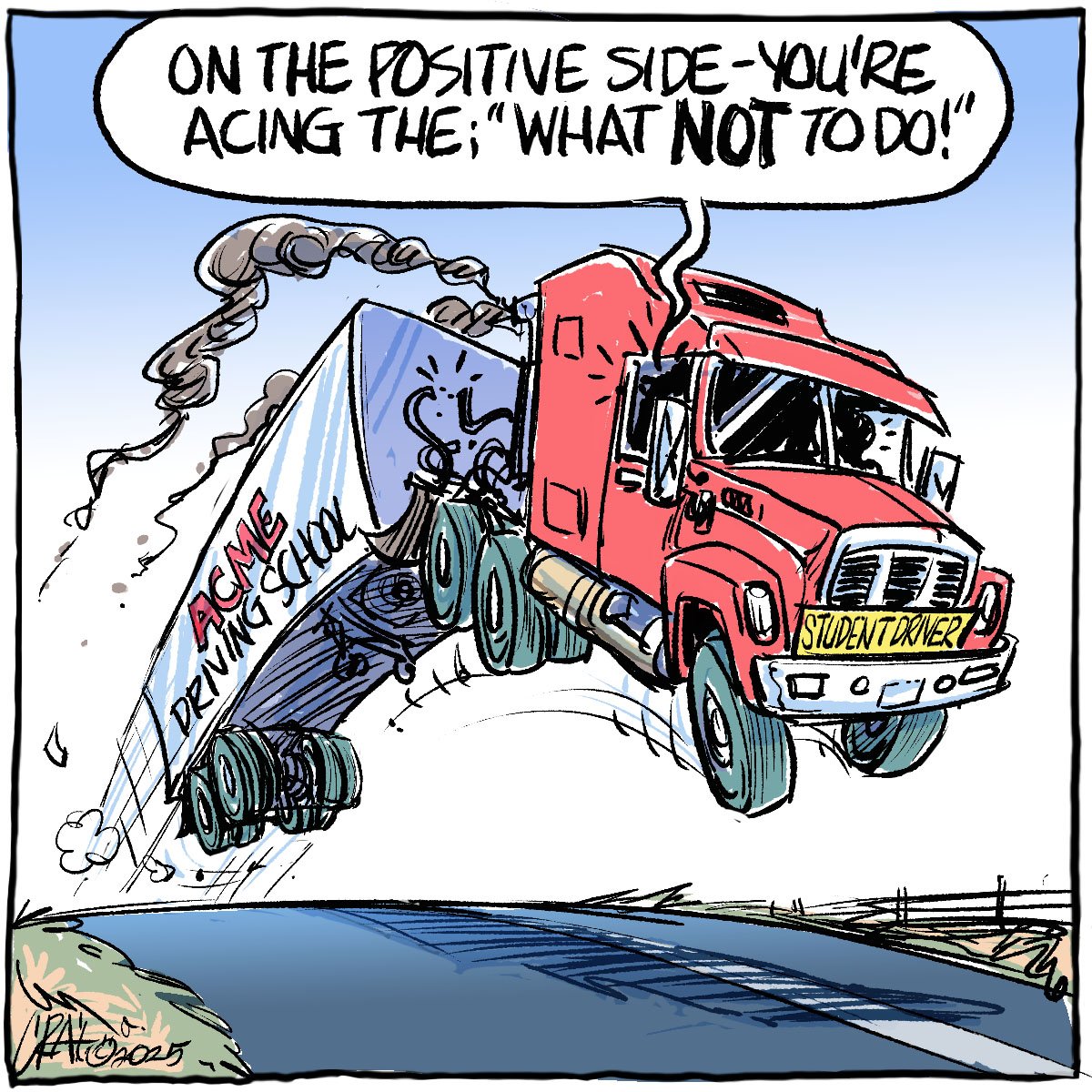When he published his political masterpieceLeviathan in 1651, the English political philosopher and commentator Thomas Hobbes coined a phrase for the ages.
Life in his time (the English civil war and all that and before cell phones), he wrote, was “nasty, brutish and short.”
How could he, 360 years ago, have imagined the final political debate around the demise of the Canadian Wheat Board in a country that had yet to be formally created? Smart fellow.
As outlined by the Conservative government this week, the final political debate about the fate of the 68-year-old wheat and barley monopoly marketing agency will be nasty, brutish and short indeed. The bill must be passed by mid-December to get the new regime and all the necessary regulations in place by July 31, 2012.
Read Also

Efforts to improve trucking safety must be applauded
The tragedy of the Humboldt Broncos bus crash prompted calls for renewed efforts to improve safety in the trucking industry, including national mandatory standards.
The Conservatives have given Parliament less than seven weeks to pass a bill that is complex, profound and controversial – an amazingly speedy passage in a political maze that often takes months or years to approve legislation.
That is the short part.
The brutish part will be the Conservative tactics, cutting off debate at every stage, running roughshod over opposition rights, limiting public input into committee hearings and throttling debate. There is no other way to meet that December deadline.
While the government has the right in Parliament to cut off debate, it does not have that power in committee or in the Senate.
In the House of Commons agriculture committee, it will require Conservative chair Larry Miller to lean to his Conservative roots to stop opposition MPs from filibustering the way Conservative MPs did in the last Parliament when they were a minority, under the chair’s benign gaze.
In the Senate, it will require the Conservative majority to flex its muscle to stop what is a traditional right of the opposition to gab on as long as it wants.
The nasty part will be the conflicting claims of the opposing sides.
The Conservatives will insist they have a mandate from prairie farmers because they overwhelmingly supported the party in the May election.
Besides, farmers have been demanding marketing “freedom” for years, even though the main advocates – western wheat and barley growers – are splinter groups with small memberships, although with the powerful ear of the Conservative government.
On the other side, CWB supporters and opposition MPs will insist that the majority of prairie farmers support the monopoly because the recent CWB plebiscite said so.
But who are those voters? Are they farmers trying to make a living from growing CWB grain or just dabblers, city folk or retirees who like to keep a finger in farming and have a permit book for their 30 acres of wheat?
This week, CWB chair Allen Oberg said that is an irrelevant question. Anyone who grows grain and has delivered to the CWB has a stake in the future of the board whether they are big or small.
Otherwise, federal votes would be weighted by how much income tax you pay, he argued.
Expect the Conservatives to argue that board supporters tend to be the farmers least dependent on grain sales for their livelihood – the old, the small, the renter.
That will be the nasty part – trying to decide who is a legitimate farmer in this toxic debate.














